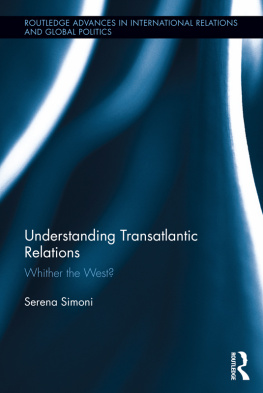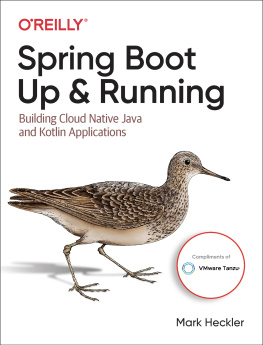
Environmental Anthropology
and Ethnobiology
General Editor: Roy Ellen, FBA
Professor of Anthropology, University of Kent at Canterbury
Interest in environmental anthropology has grown steadily in recent years, reflecting national and international concern about the environment and developing research priorities. This major international series is a vehicle for publishing up-to-date monographs and edited works on particular issues, themes, places or peoples which focus on the interrelationship between society, culture and the environment.
Volume 1
The Logic of Environmentalism: Anthropology, Ecology and Postcoloniality
Vassos Argyrou
Volume 2
Conversations on the Beach: Fishermen's Knowledge, Metaphor and Environmental Change in South India
Gotz Hoeppe
Volume 3
Green Encounters: Shaping and Contesting Environmentalism in Rural Costa Rica
Luis A. Vivanco
Volume 4
Local Science vs. Global Science: Approaches to Indigenous Knowledge in International Development
Edited by Paul Sillitoe
Volume 5
Sustainability and Communities of Place
Edited by Carl A. Maida
Volume 6
Modern Crises and Traditional Strategies: Local Ecological Knowledge in Island Southeast Asia
Roy Ellen
Volume 7
Traveling Cultures and Plants: The Ethnobiology and Ethnopharmacy of Human Migrations
Andrea Pieroni and Ina Vandebroek
Volume 8
Fishers and Scientists in Modern Turkey: The Management of Natural Resources, Knowledge and Identity on the Eastern Black Sea Coast
Stale Knudsen
Volume 9
Landscape Ethnoecology: Concepts of Biotic and Physical Space
Edited by Leslie Main Johnson and Eugene
Hunn
Volume 10
Landscape, Process and Power: Re-evaluating Traditional Environmental Knowledge
Edited by Serena Heckler
Volume 11
Mobility And Migration In Indigenous Amazonia: Contemporary Ethnoecological Perspectives
Edited by Miguel N. Alexiades
Volume 12
Unveiling the Whale: Discourses on Whales and Whaling
Arne Kalland
Volume 13
Virtualism, Governance and Practice: Vision and Execution in Environmental Conservation
Edited by James G. Carrier and Paige West
Volume 14
Ethnobotany in the New Europe: People, Health and Wild Plant Resources
Edited by Manuel Pardo-de-Santayana, Andrea Pieroni and Rajindra K. Puri
Volume 15
Urban Pollution: Cultural Meanings, Social Practices
Edited by Eveline Drr and Rivke Jaffe
Volume 16
Weathering the World: Recovery in the Wake of the Tsunami in a Tamil Fishing Village
Frida Hastrup
Published in 2009 by
Berghahn Books
www.berghahnbooks.com
2009, 2012 Serena Heckler
First ebook edition published in 2011
First paperback edition published in 2012
All rights reserved. Except for the quotation of short passages for the purposes of criticism and review, no part of this book may be reproduced in any form or by any means, electronic or mechanical, including photocopying, recording, or any information storage and retrieval system now known or to be invented, without written permission of the publisher.
Library of Congress Cataloging-in-Publication Data
Landscape, process and power : re-evaluating traditional environmental knowledge / edited by Serena Heckler.
p. cm. (Environmental anthropology and ethnobiology; v. 10)
Includes bibliographical references and index.
ISBN 978-1-84545-549-1 (hbk.) -- ISBN 978-0-85745-613-7 (pbk.) -- ISBN 978-1-84545-904-8 (ebk.)
1. Indigenous peoples--Ecology. 2. Conservation of natural resources. 3. Sustainable development. 4. Environmental education. I. Heckler, Serena.
GF50.L35 2009
333.72--dc22
2008033907
British Library Cataloguing in Publication Data
A catalogue record for this book is available from the British Library
ISBN 978-1-84545-549-1 hardback
ISBN 978-0-85745-613-7 paperback
ISBN 978-1-84545-904-8 ebook
List of Figures and Tables
Figures
Tables
List of Contributors
Miguel N. Alexiades has conducted extensive ethnobotanical and ethnoecological fieldwork among the indigenous Ese Eja in the border areas of Amazonian Peru and Bolivia on a broad number of issues relating to human-environment relations. His current research focuses on the historical and political ecology of cultural landscapes and ancestrally-occupied lands. He has published extensively on various methodological, ethical and political aspects of ethnobotanical fieldwork. He has recently finished editing a volume on indigenous mobility and migration and human-environment interactions, Mobility and Migration in Indigenous Amazonia: Contemporary Ethnoecological Perspectives (Berghahn Books, forthcoming).
Sandra Bell is Senior Lecturer in the Department of Anthropology at Durham University, UK. She is an environmental anthropologist with an interest in interdisciplinary research. From 2001-2004 she led an EU funded project on European wetlands and recently completed a project on the participation of amateur naturalists in the scientific monitoring of biodiversity.
Manuel Boissire is an ethnobotanist, working at the French Agricultural Research Centre for International Development (CIRAD). Since 2003, he has been seconded to the Centre for International Forestry Research (CIFOR) in Indonesia, studying the relationships between local forest dependent communities and protected areas in West Papua, and working on the local uses of biodiversity in the Mekong Region (Laos and Cambodia). This chapter is based on the work that he undertook for his PhD in West Papua, where he was analyzing a rural, highland society's relationship with the environment.
David N. Carss is a vertebrate ecologist specialising in predator-prey relationships, particularly those involving fish-eating predators. His research at the Centre for Ecology Edinburgh (and formerly Banchory) has included work on amphibians, fishes, mammals and birds. He has also developed a number of collaborative interdisciplinary research projects with social scientists and has begun exploring the links between science, society and policy-making.
Takeshi Fujimoto received his Ph.D. from Kyoto University in 2002 and currently works at the University of Human Environments, Okazaki, Japan. Since 1993, he has undertaken anthropological fieldwork among the Malo and neighbouring peoples in southwestern Ethiopia. His major interest is in sustainable environmental use and livelihood systems in mountainous societies. His publications include those on cultivation and folk classification systems of cereals (tef and barley/wheat) and root crops (enset and taro), dynamics of local crop diversity, ethnogenesis and ethnohistory, social stratification and marginalisation of artisan groups, and herder-farmer conflicts. Recently, he extended his fieldwork into South India and rural Japan.
Francis Chachu Ganya












